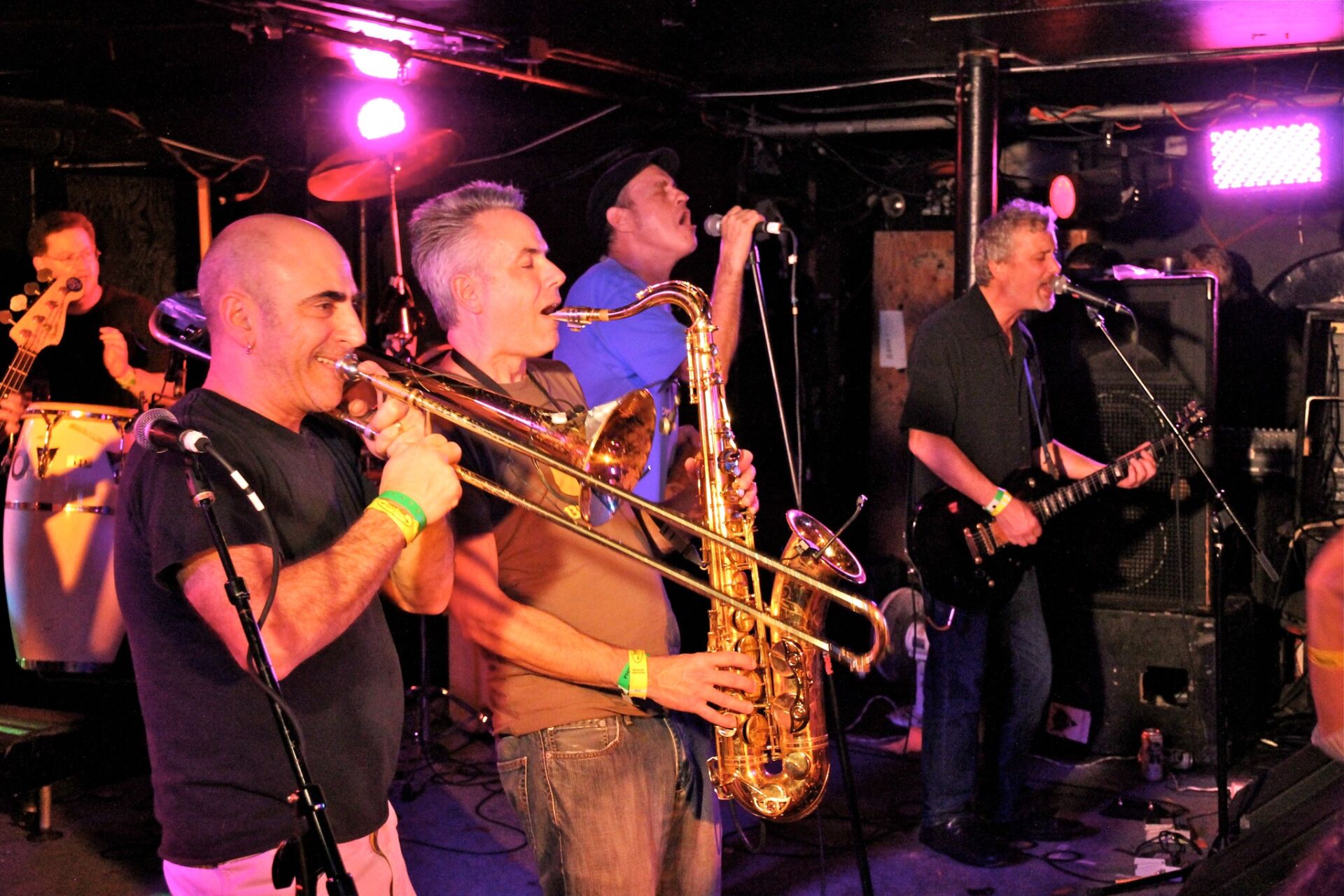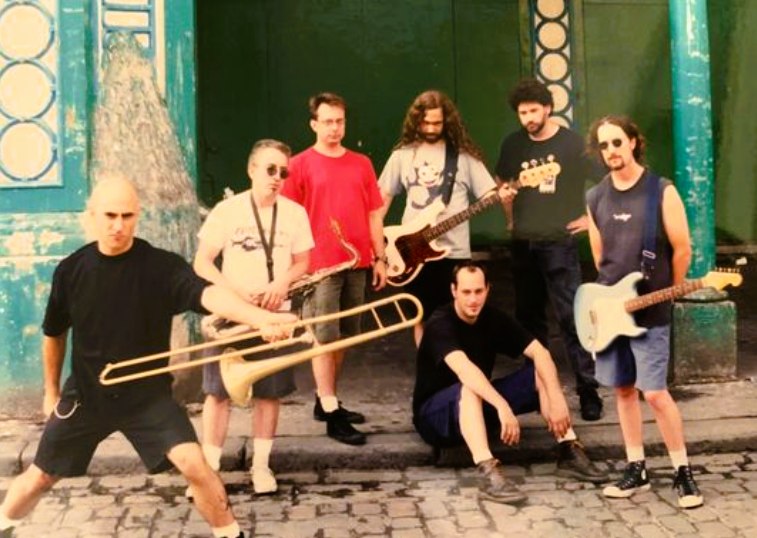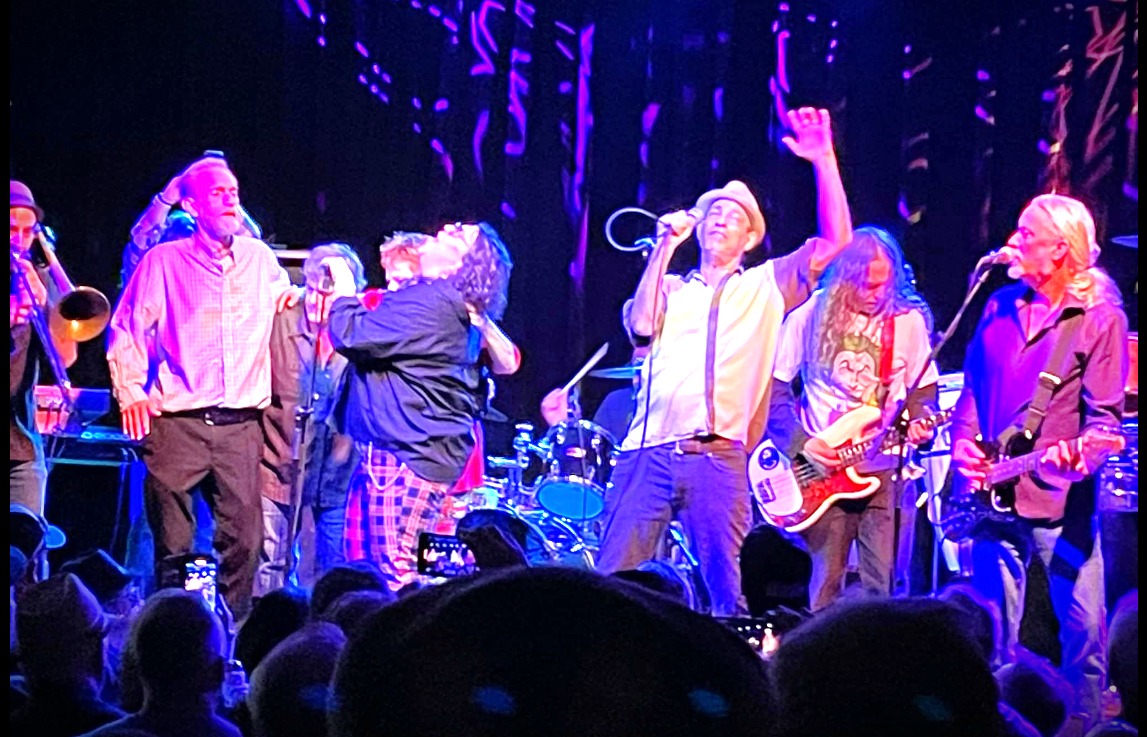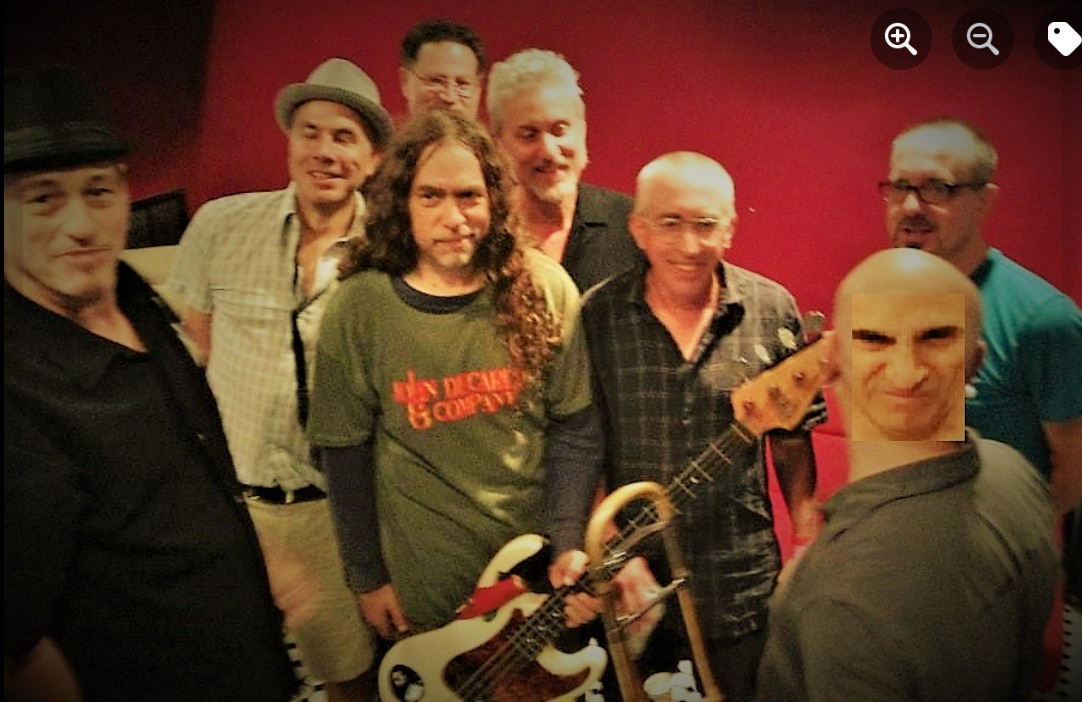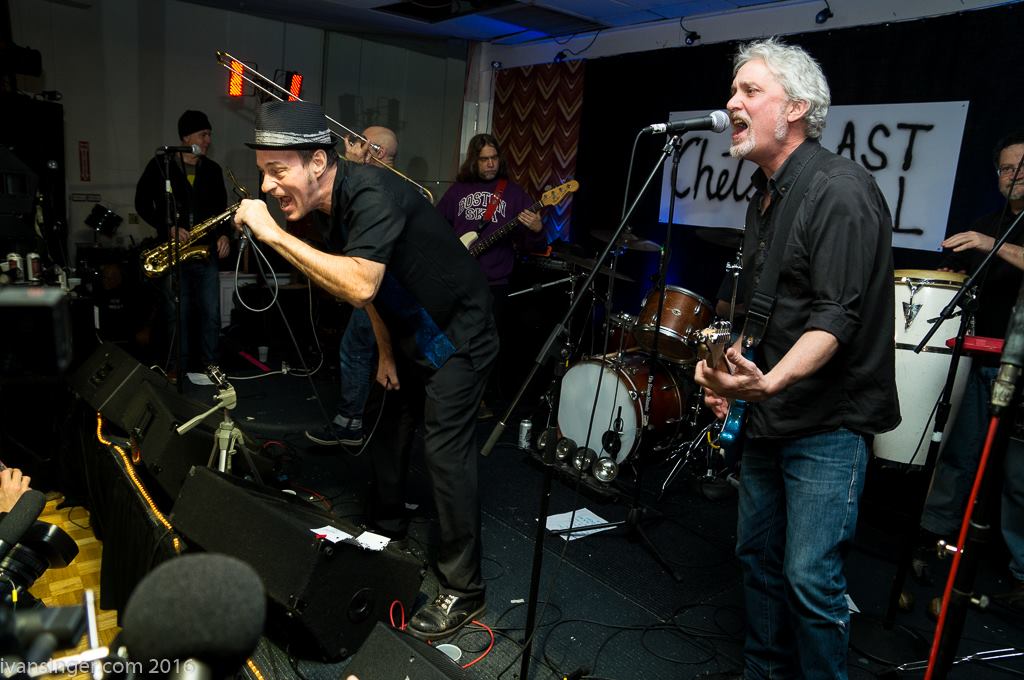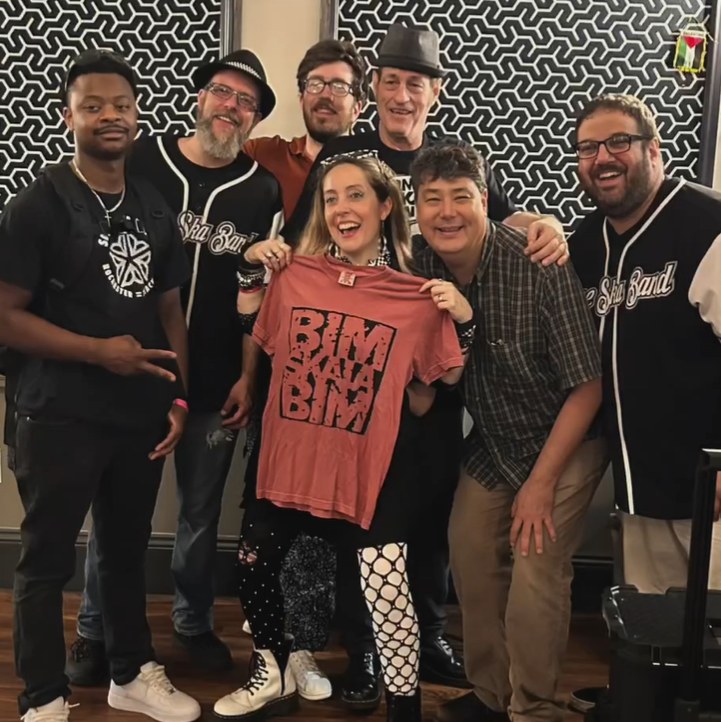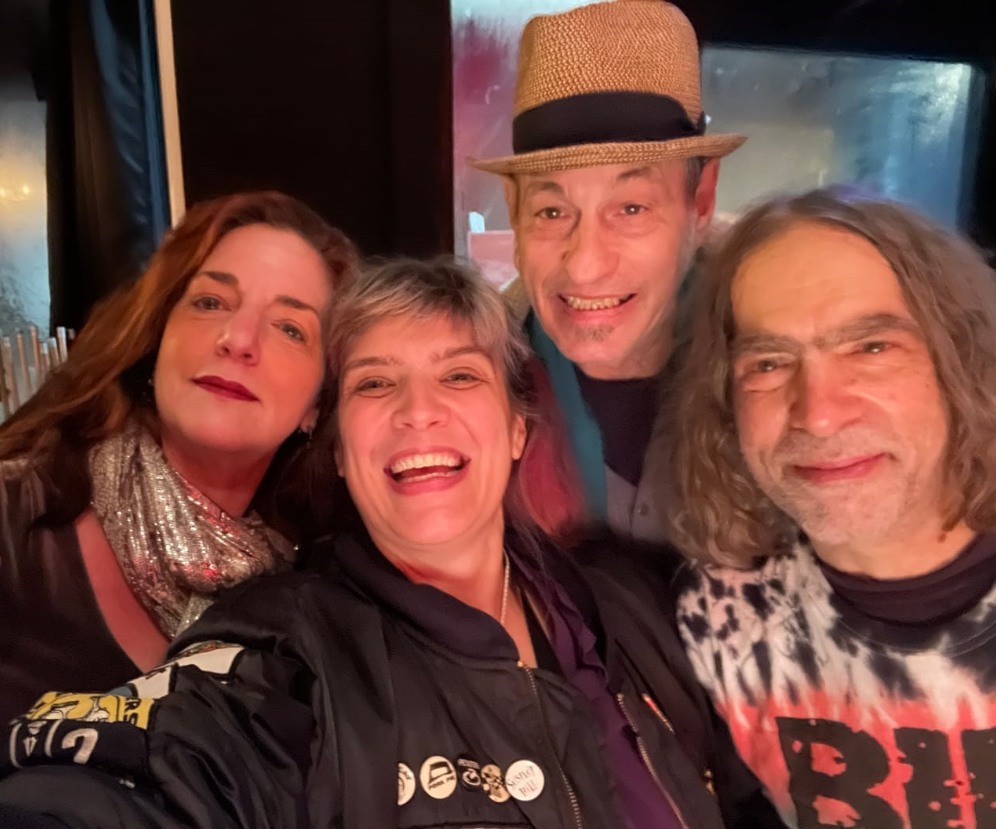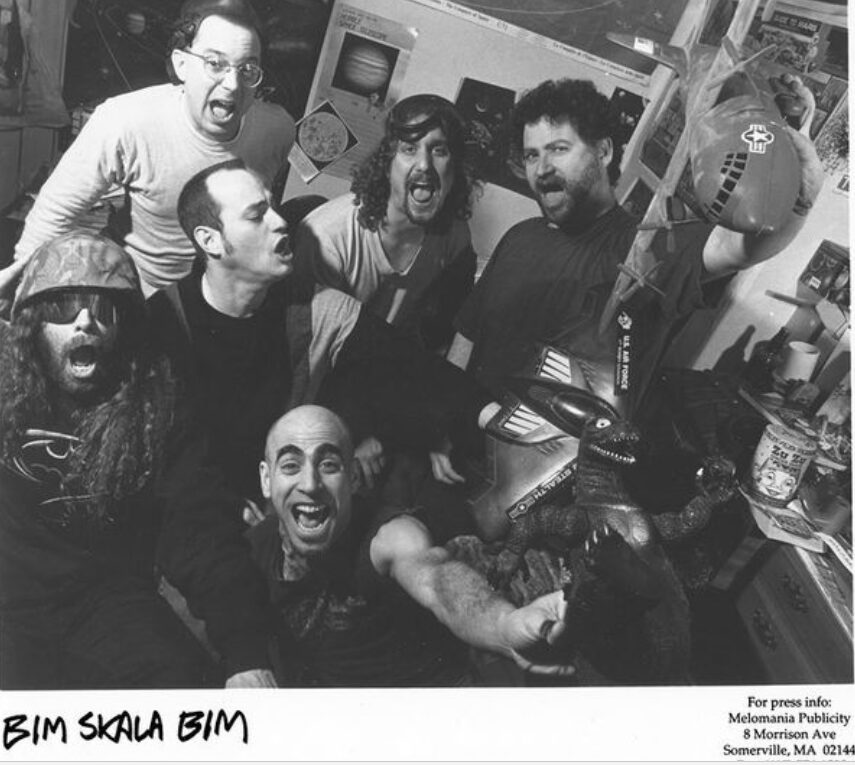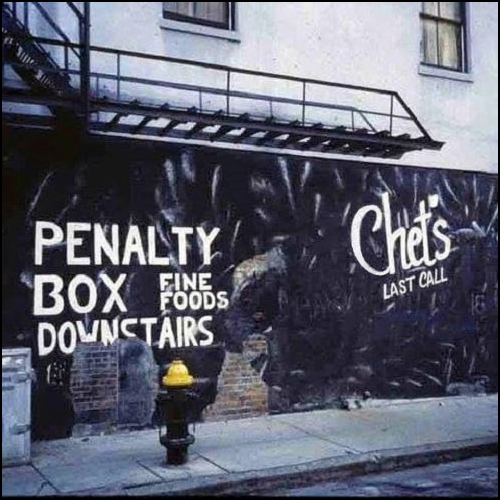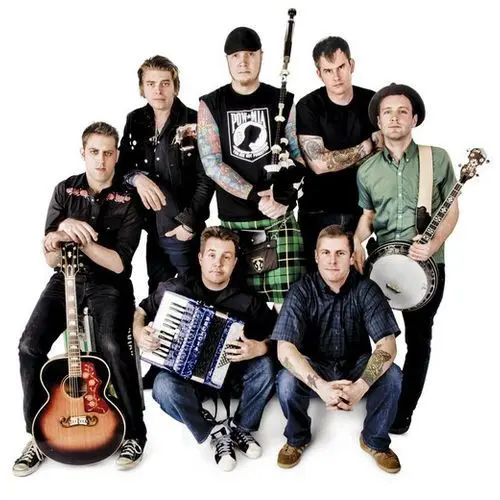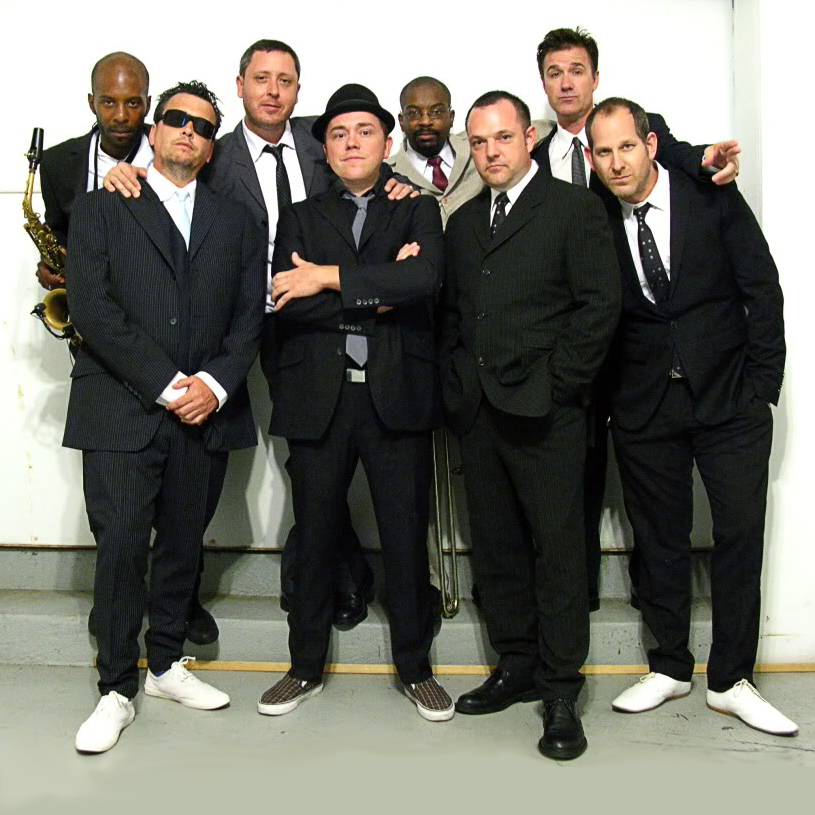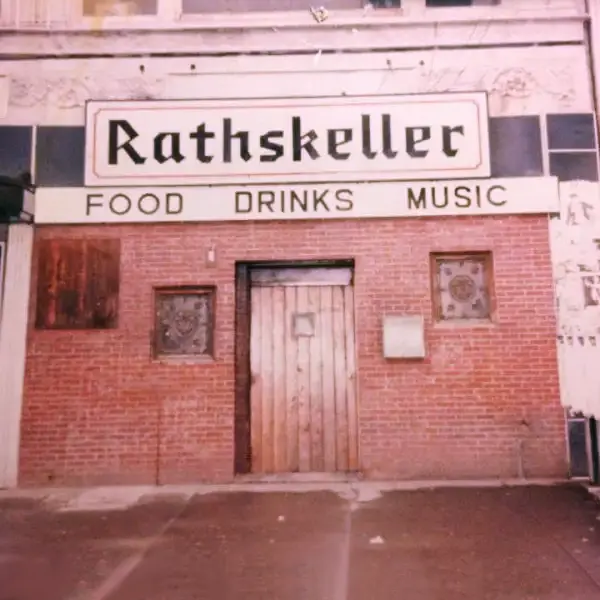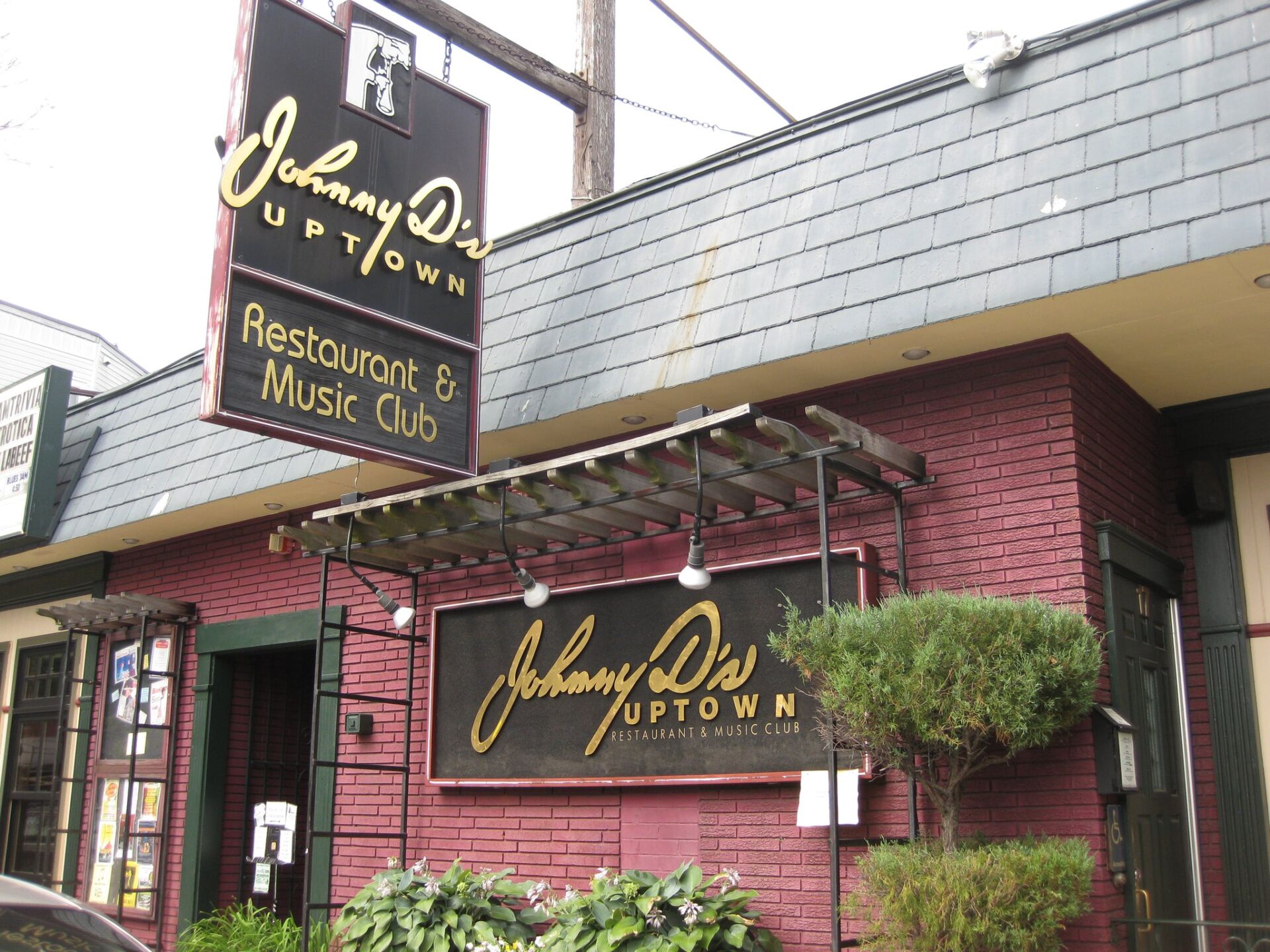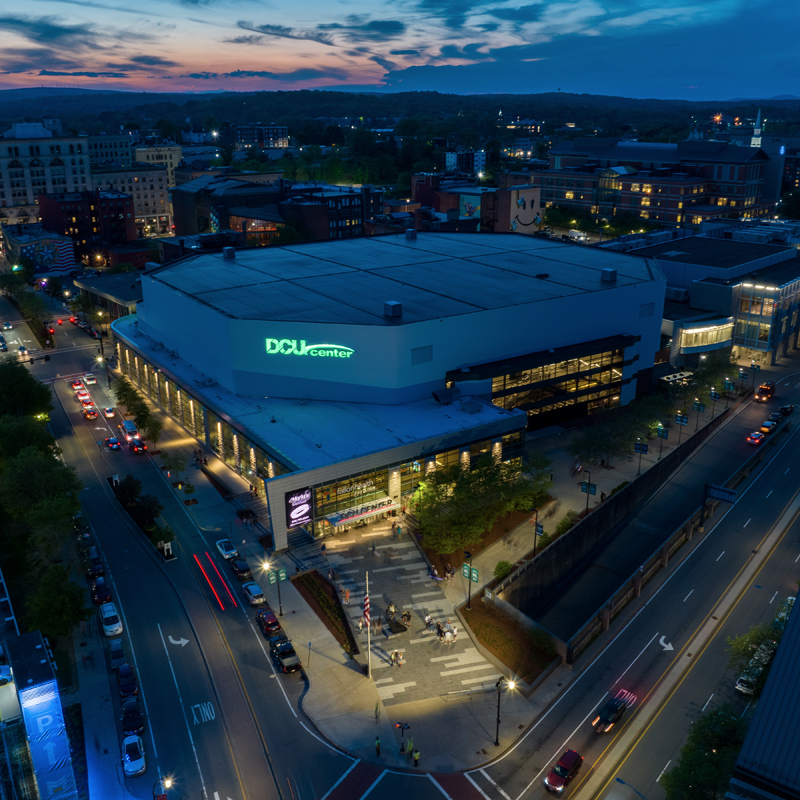Bim Skala Bim
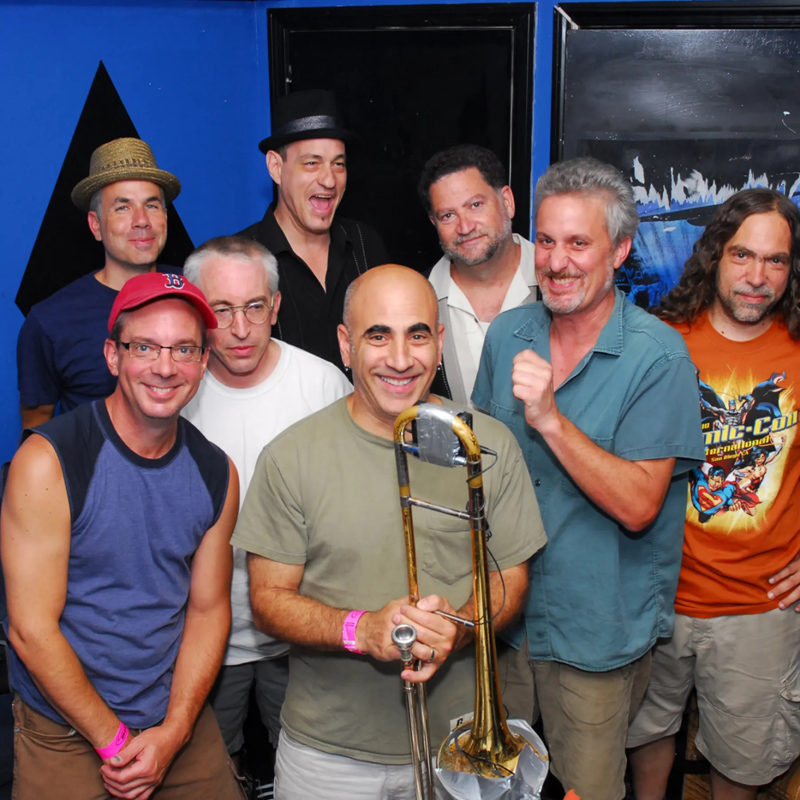
New England has produced an eclectic array of internationally acclaimed musical acts that define a specific genre. Among the most obvious are The Five Satins (doo-wop), The Modern Lovers (protopunk), The J. Geils Band (blues rock), Aerosmith (classic rock), Boston (arena rock), La Peste (punk), The Cars (new wave), Mission of Burma (postpunk), Gang Green (hardcore), Pixies (alt rock), Godsmack (heavy metal), Staind (nu metal) and Phish (jam rock), but a full list would include plenty of others.
And when it comes to ska, the glaring example is Bim Skala Bim, who were one of the first bands of the genre’s so-called “third wave,” along with New York City-based The Toasters. Though the ska scene in Boston was virtually non-existent when BSB formed in the city in 1983, they popularized the Jamaica-born style in New England and the greater US during the ‘80s and ‘90s and still play occasional shows, making them one of the longest-running ska acts in the nation. Deeply influenced by reggae royalty like Bob Marley and Jimmy Cliff and the 2-Tone movement of the late ‘70s/early ‘80s that gave the world The Specials, Madness, The Beat and UB40, they’ve also cited The Clash and The Police as inspirations and they added elements of classic rock, calypso and New Orleans to their musical recipe, cooking up an acoustical stew known as the “Boston Blue Beat Sound.”
Over the past 40 years, through various lineup changes and extended periods out of the studio, the band’s cut 13 albums (12 studio, one live), won 10 Boston Music Awards, eight Boston Phoenix readers’ polls and two “Best of Boston” rankings from Boston magazine. In 2013, Boston Business Journal put their 1991 LP Bones at #19 in their “Boston Top 40 Albums of All Time” list and their songs have been featured on MTV’s The Real World and Road Rules.
Original lineup, Debut album, Mash It Up!, Boston does The Beatles
Bim Skala Bim’s original lineup consisted of vocalist Dan Vitale, bassist Mark Ferranti, guitarist Ephraim Lessell, keyboardist Robin Ducot, drummer Chris Kramtch and trombonist-vocalist John Ferry, and there were several personnel changes over the band’s first few years. Vitale and Ferranti, who met through the Somerville Media Action Project (where Ferranti worked with two of Vitale’s siblings), have been constant presences and the current lineup, which hasn’t changed since 1989, is Vitale, Ferranti, guitarist Jim Jones, keyboardist John Cameron, drummer Jim Arhelger, trombonist Vinny Nobile and percussionist Rick Barry.
“When we started there were just a couple of ska bands in town,” Vitale told Brett Milano for a January 2024 piece published in The Boston Herald. “There was Dub 7, who we really looked up to because they opened for The Clash on Cape Cod. We didn’t have anyone to compare ourselves to, but we all loved Bob Marley and UB40. At that time, it wasn’t easy to be an all-white reggae band, but now you can’t swing a stick without hitting one.”
BSB played their first gig at Chet’s Last Call in Boston and in early 1986, after several years playing other clubs, colleges and universities in and around the city, they cut their eponymous debut album at Audio Matrix in Cambridge; Fonograff Records released the 10-track LP in April that year. The disc landed them on the cover of College Music Journal, which was extremely influential at the time in terms of getting airplay on commercial FM stations, and three of their songs – “Veil of Sadness,” “I Took a Fall” and “Tell Me” – were included on the 1987 Razorbeat compilation Mash It Up!. In 1988, by which time they were a frequent act at Boston’s then-largest rock club, The Channel, their cover of The Beatles‘ “Rain” appeared on the Fast Track Records release Boston Does the Beatles.
Going global, 1990s albums, Tours
The band made their first European tour in 1988, opening for a number of first-generation ska legends including Prince Buster (at the first annual London International Ska Festival, held at The Sir George Robey). “It was completely sold out and everyone was going nuts,” Vitale explained to Milano in the Boston Herald article. “We were onstage and Prince Buster is standing in the middle of the dance floor, with his arms folded, staring right at me. I didn’t realize that meant that he liked us. But he ran up and gave me a huge hug afterwards.”
After signing with Celluloid Records in 1988, the band recorded 1989’s Tuba City, which turned out to be their only release on the label. They self-released their next two studio outings, How’s It Going? (1990) and Bones (1991), and in 1992 Relativity Records began distributing their albums through the group’s own label, BiB Records (“BiB” being an acronym for “Best in Boston”). Later ‘90s LPs also appeared on BiB, including Live at the Paradise (1993, from a show at the Paradise Rock Club in Boston), Eyes and Ears (1994), American Playhouse (1995) and Universal (1997). In 1998, Beatville Records issued the band’s eighth album, The One That Got Away.
During the ‘90s, they made multiple tours of the US, headlining at several celebrated venues including the Whiskey A Go-Go in West Hollywood while doing hometown shows at the Paradise, The Rathskeller, The Middle East and various colleges and universities in and around Boston. In 1997, BSM was part of a 50-date tour of the US and Canada billed as “Boston on the Road,” playing in the middle spot between up-and-coming Celtic rockers Dropkick Murphys and ska-core pioneers The Mighty Mighty Bosstones; the tour included a New Year’s Eve show at the Centrum in Worcester. “Funny how the opening band on that tour is the biggest one now,” Vitale said to Milano. “I actually knew Kenny [Dropkick frontman Ken Casey] before the band started. My other band, Steady Earnest, played his wedding. We loved Dropkick Murphys right away.”
Krinkle, Chet’s Last Call, Sonic Tonic
By 2000, the year that Beatville released the group’s ninth studio LP, Krinkle, the band was suffering some burnout, Vitale told Jim Sullivan in a 2024 piece published in The Boston Globe, which led a 12-plus-year break from recording starting in 2002. Around that time, after considering a move to Jamaica, Vitale relocated to the Panamanian island of Bastimentos, where he continues to live today; since then, BSB shows and recording sessions have tended to happen only during the twice-annual visits to the US required to renew his visa. During the recording hiatus, they played occasional live shows including ones at the House of Blues in Boston in 2009 and Johnny D’s in Somerville in 2011.
The band returned to the studio in 2013 to record their eleventh studio disc, Chet’s Last Call, named after the bar where there they first performed live, and issued it on their own label, Bimska. As further testimony to how important the venue was to them and other local bands in the ‘80s, Vitale and his brother co-directed the 2018 documentary Chet’s Last Call: A Story of Rock & Redemption about the club and its proprietor, Richard “Chet” Rooney. To support the LP’s release, they toured Europe in the spring of 2014, ending with a show at the Freedom Sounds Festival in Cologne, Germany in May.
The band’s most recent national tour was in 2018 and included appearances in Massachusetts, Rhode Island, Connecticut, New Hampshire and Maine along with ones in New York City, Washington D.C., Nashville, Atlanta, Birmingham, Houston and Oklahoma City, among other stops. In 2021, Specialized Records released the BSB’s latest album, Sonic Tonic, a nine-track effort that features appearances by Dave Hillyard (The Slackers), Chris Rhodes (The Mighty Mighty Bosstones), Nick Welsh (aka King Hammond), Ken Stewart (The Skatalites) and Steve Cracknell (The Dub Pistols). Due to Covid restrictions at the time, the band didn’t support the album with a tour.
Recent New England appearances, Current activity
BSB’s most recent appearances in New England came in January and July of 2024, billed as the “Four Decades Together Tour.” In January, they played evening shows at Alchemy in Providence, Rhode Island and Starlight Gallery in Southbridge, Massachusetts and did a Saturday matinee at The Crystal Ballroom in Somerville. They returned to the Crystal in July during a brief tour of New England that included gigs at The Music Room in Yarmouth on Cape Cod: The Marigold Theatre in Easthampton, Massachusetts; Scottish Dave’s in Clinton, Connecticut: The Portland Bowl in Portland, Maine; and The Stone Church in Newmarket, New Hampshire.
These days, with BSB being a spotty gig at best, bassist Ferranti, guitarist Jones and drummer Arhelger play together in the band Swampanova; Ferranti is also part of the Bob Marley tribute band Duppy Conquerors. Keyboardist Cameron has become a well-known cabinetmaker based in Gloucester, Massachusetts, and Vitale remains music-focused on Bastimentos. “I produce a lot of bands in the country where I live,” he explained to Sullivan in the Boston Globe article. “I work with people from all over the world from my shack on the beach, and I kinda love it.”
Asked in 2024 what he thought of the American mainstream ska scene that emerged in the 1990s, a decade or so after Bim Skala Bim helped popularize the genre, Vitale said he wasn’t a fan. “I’m not pleased with everything that I’ve seen,” he told Sullivan. “To put it bluntly, it’s turned into a cartoon with bands singing about beer, that kind of thing. Of course I drank plenty over the years, but we don’t think that’s what it should be about.” In January 2025, he said he thinks that today’s ska scene is fantastic. “I love the current ska scene in Boston, New England and around the world because now more than ever it’s not dominated by just a small number of bands that got signed to major labels,” he said.
(by D.S. Monahan)

